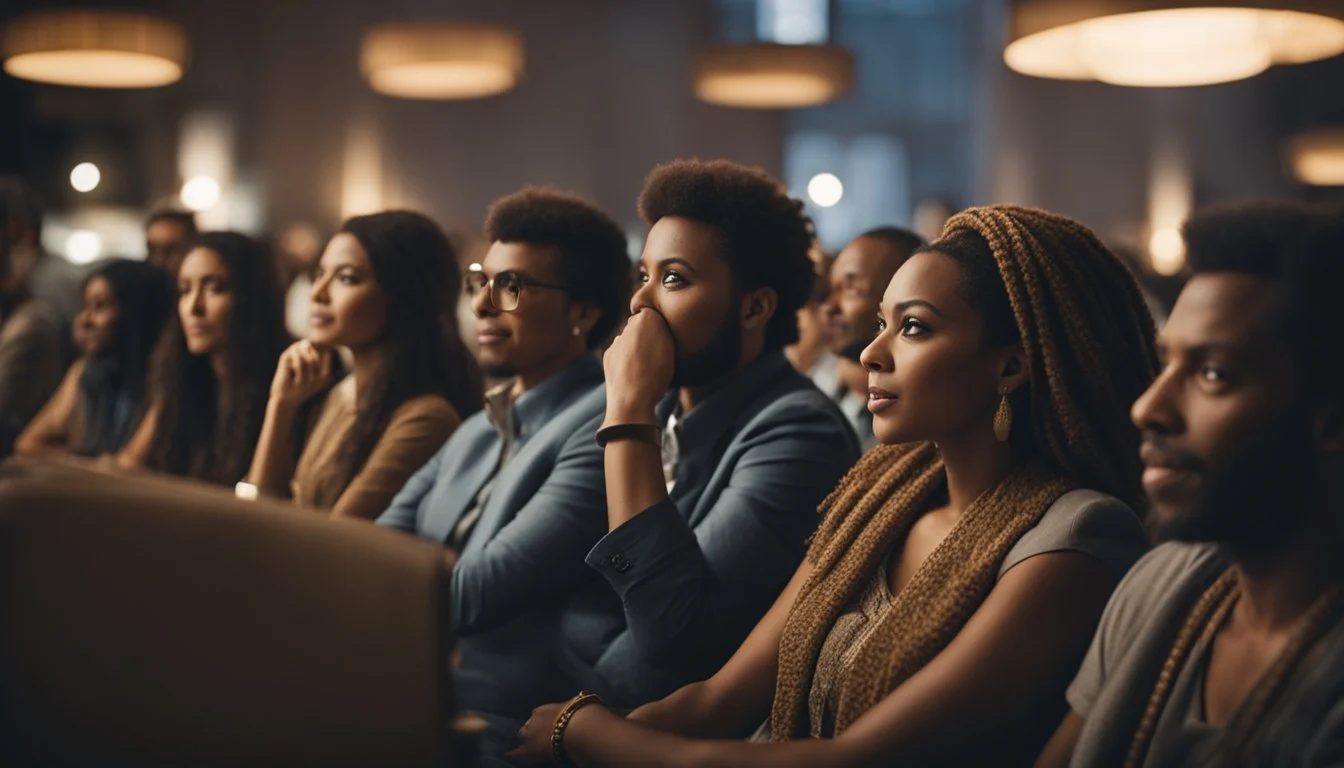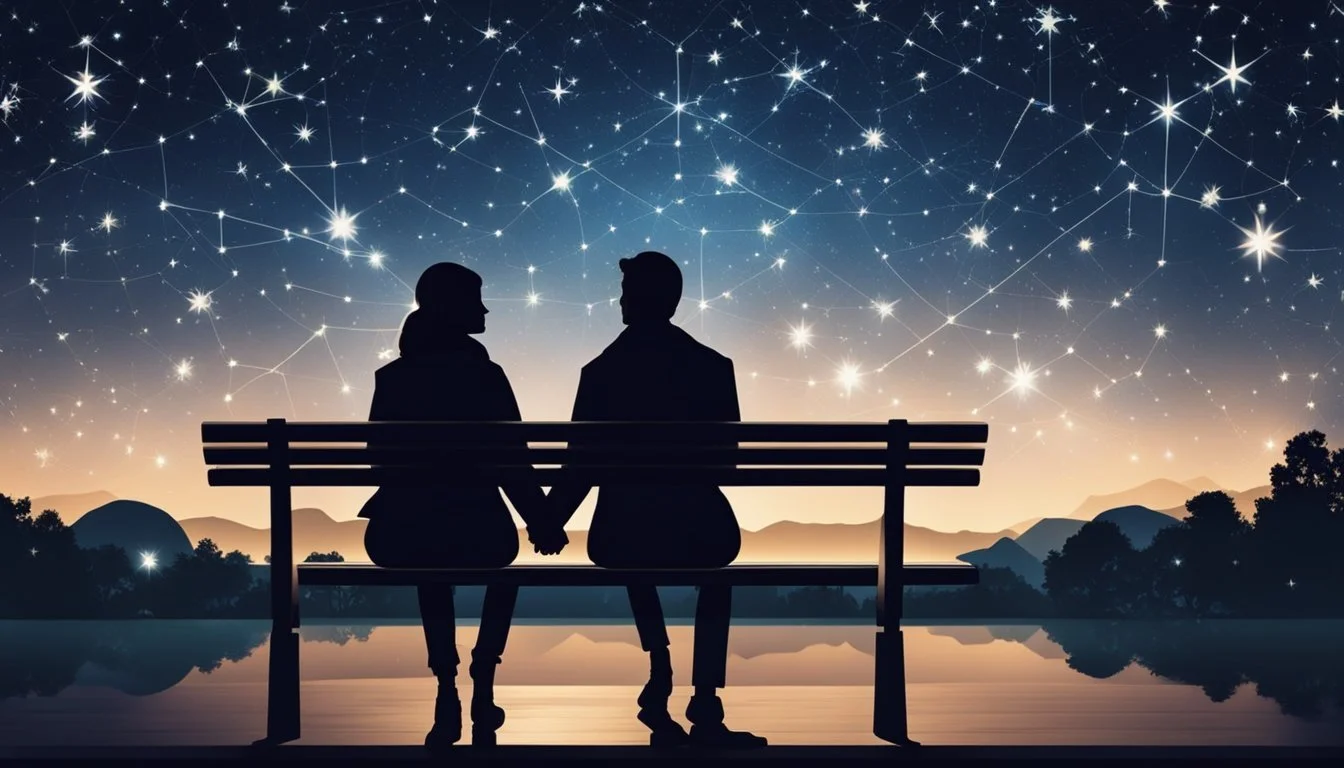4 Documentaries That Challenge Conventional Ideas of Love
Redefining Relationships in Modern Society
Documentaries have long been a powerful medium for exploring the complexities of human relationships. They offer viewers a unique window into real-life love stories, often challenging preconceived notions about romance and partnership.
These films go beyond the typical Hollywood narratives, presenting love in its raw, unscripted form. By focusing on unconventional relationships or examining traditional ones from new angles, documentaries can shed light on the diverse ways people experience and express love in the modern world.
1) Married in America (2003)
"Married in America" is a documentary series directed by Michael Apted that challenges traditional views of marriage. The project follows nine diverse couples over a decade, capturing the realities of their relationships.
Apted's film explores the complexities of modern unions, showing how couples navigate economic challenges, career changes, and evolving expectations. It offers an intimate look at the joys and struggles of commitment.
The documentary presents a range of perspectives, featuring couples from different backgrounds and with varying relationship dynamics. This diversity helps paint a nuanced picture of marriage in contemporary America.
By revisiting the couples periodically, "Married in America" reveals how relationships transform over time. It captures moments of growth, conflict, and adaptation, providing insights into the long-term nature of marriage.
2) Monogamish
Monogamish (2014) explores the evolving landscape of modern relationships. The documentary challenges traditional notions of monogamy and examines alternative relationship structures.
Director Tao Ruspoli embarks on a personal journey to understand love and commitment after his own divorce. He interviews experts, activists, and couples practicing various forms of non-monogamy.
The film delves into the history of marriage and questions why strict monogamy has become the societal norm. It presents arguments for more flexible relationship models that allow for some degree of openness.
Monogamish features insights from relationship guru Dan Savage, who coined the term "monogamish" to describe committed couples who occasionally engage in consensual non-monogamy. The documentary explores how these arrangements can potentially strengthen relationships.
Through candid conversations and expert analysis, the film encourages viewers to reconsider their beliefs about love, fidelity, and partnership. It presents non-monogamy as a viable option for some couples, while acknowledging the challenges involved.
More information on Monogamish
3) The Mask You Live In (2015)
The Mask You Live In examines the impact of societal expectations on masculinity in America. This documentary challenges traditional notions of what it means to be a man.
Directed by Jennifer Siebel Newsom, the film explores how boys and young men navigate cultural pressures to conform to a narrow definition of masculinity. It features interviews with experts, activists, and personal stories from males of various ages.
The documentary delves into topics such as emotional repression, violence, and the objectification of women. It highlights the potential consequences of these learned behaviors on mental health and relationships.
The Mask You Live In offers a critical look at how media, peer groups, and even adults contribute to shaping masculine ideals. It raises questions about the costs of adhering to these rigid expectations.
By examining these issues, the film encourages viewers to reconsider societal norms and foster healthier expressions of masculinity. It aims to spark conversations about gender roles and their impact on individuals and society.
More information on The Mask You Live In
4) Love Free or Die (2012)
Love Free or Die chronicles the groundbreaking journey of Gene Robinson, the first openly gay bishop in the Episcopal Church. The film explores the conflict between Robinson's faith and his sexuality.
Director Macky Alston captures Robinson's struggle to reconcile his love for God with his love for his partner Mark. The documentary highlights the controversy surrounding Robinson's consecration in 2003.
Love Free or Die examines the broader implications of Robinson's story for the LGBTQ+ community and organized religion. It showcases the bishop's efforts to promote acceptance and equality within the church.
The film received critical acclaim and won the Special Jury Prize at the 2012 Sundance Film Festival. It presents a thought-provoking look at the intersection of faith, love, and identity.
Love Free or Die challenges viewers to reconsider traditional notions of religious leadership and same-sex relationships. It offers a powerful testament to the pursuit of love and acceptance in the face of adversity.
More information on Love Free or Die
Exploration of Love in Non-Traditional Narratives
Documentaries exploring unconventional love stories challenge societal norms and expand our understanding of relationships. These films examine diverse cultural perspectives and unique personal experiences, shedding light on the complexities of human connection.
Impact of Cultural Influences on Perceptions of Love
Cultural backgrounds significantly shape how individuals perceive and express love. Documentaries often highlight these diverse viewpoints, showcasing relationships that defy traditional expectations. For example, some films explore arranged marriages in certain cultures, examining how love develops over time rather than beginning with romantic passion.
Others focus on cross-cultural relationships, revealing the challenges and rewards of bridging different worldviews. These documentaries may feature couples navigating language barriers, religious differences, or conflicting family expectations.
Some films examine non-monogamous relationships, exploring how different cultures view polyamory or open partnerships. By presenting these varied perspectives, documentaries encourage viewers to question their own assumptions about love and relationships.
Intergenerational relationships are another topic explored in non-traditional love documentaries. These films often delve into the social stigma surrounding age gaps and how couples navigate disapproval from family and friends.
Psychological Perspectives on Love
Attachment styles play a crucial role in shaping how individuals experience and express love. These patterns, formed in early childhood, influence romantic relationships throughout life.
Role of Attachment Styles
Secure attachment fosters healthy, trusting relationships. Individuals with this style feel comfortable with intimacy and independence. They communicate openly and handle conflicts constructively.
Anxious attachment can lead to emotional dependency. These individuals may fear abandonment and seek constant reassurance from partners. They often struggle with jealousy and may become overly clingy.
Avoidant attachment is characterized by discomfort with closeness. People with this style may prioritize independence over intimacy. They might struggle to express emotions or commit fully to relationships.
Disorganized attachment, resulting from traumatic experiences, can cause unpredictable behavior in relationships. These individuals may simultaneously crave and fear closeness, leading to turbulent partnerships.
Understanding one's attachment style can improve self-awareness and relationship dynamics. Therapy and conscious effort can help modify unhealthy patterns, promoting more fulfilling connections.





